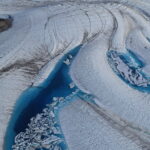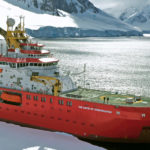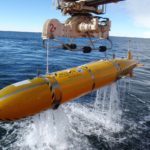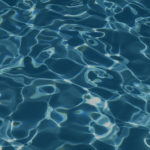The Greenland Ice Sheet is decaying at an accelerating rate in response to climate change. Warm ocean waters moving through the fjords eventually meet the faces of marine-terminating glaciers, increasing melting and iceberg calving. In turn, these freshwater inputs are altering ocean circulation and ecosystems in coastal areas around Greenland but also farther afield in the North Atlantic with the potential to affect UK weather systems. It is now imperative to understand how ice-sheet decay will progress as our climate warms, as well as the knock-on effects on ocean circulation and marine productivity.
One way to determine which ice-ocean-marine ecosystem scenarios are analogues for future warming projections is to extend the record of modern observations back over the last 11,700 years of the Holocene using proxies from marine sediment cores. A few records of 20th Century iceberg calving and warm water encroachment exist around Greenland but there are no comprehensive, coupled records of past glacier change, ocean warming and marine productivity for earlier periods. KANG-GLAC is a 3.5 year project that will generate these long-term records for the Holocene era for a key location in SE Greenland (Kangerlussuaq Fjord) calibrated by observations of the present-day system over three annual cycles. We will then use numerical modelling constrained by our new data to test how the Greenland Ice Sheet responded to climatic warming during the Holocene, particularly during the Holocene Thermal Maximum when summer temperatures were analogous to those predicted for 2100.
We will acquire a full suite of oceanographic, biological and geological observations during a 6-week multidisciplinary cruise to SE Greenland on the UK’s new polar research vessel, the RRS Sir David Attenborough, making full use of its state-of-the-art capabilities as a logistical platform. We will use cruise datasets to determine modern interactions between warm water inflows and glacial meltwater outflows, and to quantify marine productivity, sedimentation and nutrient cycling. At the same time, we will collect long and short marine-sediment cores and terrestrial rock samples to constrain past changes in glacier dynamics and derive coupled proxy records of ocean temperatures and carbon burial and storage. To do this, we will calibrate the sediment-core signals with our modern observations using an anchored mooring and repeat observations.
Colm Ó Cofaigh (Durham: Co-PI)
Jerry Lloyd (Durham: Co-I)
Dave Roberts (Durham: Co-I)
John Howe (SAMS: Co-I)
Mark Inall (SAMS: Co-I)
Christian März (Bonn: Co-I)
Jochen Voss (Leeds: Co-I)
Marie Porter (SAMS: named researcher)
15 July, 2024
This week (Friday 19 July) the UK’s polar research vessel the RRS Sir David Attenborough makes its first science expedition to the Arctic. A team will work in south-east Greenland …
The RRS Sir David Attenborough, commissioned by NERC, built by Cammell Laird for operation by British Antarctic Survey, is one of the most advanced polar research vessels in the world.



